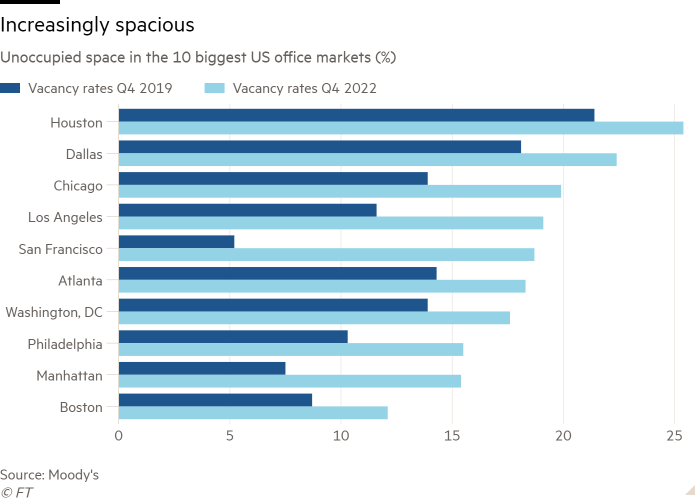One scoop to start: The US Securities and Exchange Commission has raised concerns over Rokos Capital Management after the hedge fund was forced to hand over large amounts of cash to its banks as collateral when an outsized bet on US government bonds backfired earlier this month.
Welcome to FT Asset Management, our weekly newsletter on the movers and shakers behind a multitrillion-dollar global industry. This article is an on-site version of the newsletter. Sign up here to get it sent straight to your inbox every Monday.
Does the format, content and tone work for you? Let me know: harriet.agnew@ft.com
Do asset managers live up to the standards they demand of others?
When Amar Bhidé joined the board of Baillie Gifford’s flagship Scottish Mortgage Investment Trust three years ago, an insider complimented the academic as a “world-class brain and a world-class bastard” who would take to task the £13.4bn company’s investment managers.
Bhidé departed in acrimony last week, chastising colleagues for a “natural avoidance of difficult questions after things have gone so well for so long”, as the FTSE 100-listed company announced a boardroom shake-up. Fiona McBain will stand down as chair after this year’s annual meeting, to be succeeded by senior independent director Justin Dowley.
Bhidé’s criticisms and the nature of his exit have sent ripples through the cosy world of investment trusts, a £268bn industry that forms a bedrock of pension portfolios. It also highlighted tensions over the direction of one of the UK’s most popular investment vehicles whose share price has halved over the past 18 months.
In a blistering attack, Bhidé went public with concerns about the length of McBain’s tenure; the board’s lack of investment expertise; its communications with shareholders; and the trust’s investments in unlisted companies that for most of the past decade produced exceptional investment returns. Bhidé argues those gains were an aberration rather than a new normal. “The world has not changed, it just went mad temporarily,” he told the Financial Times.
The trust’s tumbling share price has reversed a decade of stellar profits from early bets on the likes of Tesla, Amazon and Alibaba, and the tailwind of loose monetary policy in the wake of the financial crisis. It follows the departure of James Anderson, the driving force behind Baillie Gifford’s investment strategy, who made a well-timed exit last year and was replaced by his co-manager Tom Slater, and Lawrence Burns.
The Edinburgh-based private partnership now finds itself at the centre of an embarrassing episode that spotlights the question of whether asset managers live up to the standards they demand of others. “The failure here is much more one of governance than of investment,” said the chair of a rival trust. “It’s bad for the overall investment trust industry.”
Read our deep dive here, in which we delve into concerns over private company valuations, questions around governance and how the investment trust’s rising leverage levels may undermine its ability to make new investments in its portfolio of private companies like Northvolt.
US bondholders vs Swiss government
It has only been a week since Credit Suisse fell into the arms of UBS, in an attempt to prevent a crisis spreading across global markets. But the terms of the shotgun marriage has already provoked the ire of one group of investors, namely the holders of AT1 bonds.
The Swiss government used an emergency ordinance to write down $17bn of Credit Suisse bonds to zero, even as it orchestrated a deal where UBS will pay $3.25bn to shareholders.
Now US distressed debt investors and corporate litigators are preparing to fight the Swiss government over its decision. AT1s are a class of debt designed to take losses when institutions run into trouble but are generally believed to rank ahead of equity on the balance sheet.
“If this is left to stand, how can you trust any debt security issued in Switzerland, or for that matter wider Europe, if governments can just change laws after the fact,” David Tepper, the billionaire founder of Appaloosa Management, told the Financial Times. “Contracts are made to be honoured.”
Some funds have been buying exposure to the debt in preparation for the legal battle. Goldman Sachs is one of the banks facilitating claims trading and has offered prices at single-digit cents on the dollar.
Quinn Emanuel Urquhart & Sullivan and Pallas Partners are among the law firms representing bondholders. Quinn partner Richard East told the FT the deal was “a resolution dressed up as a merger” and pointed to statements by the European Central Bank and the Bank of England, which distanced themselves from the Swiss approach.
Quinn is eyeing lawsuits in multiple countries. Potential avenues include challenges to the actions of the regulator Finma on the basis of a violation of investors’ property rights or an arbitrary exercise of discretion. The firm is also looking into whether Credit Suisse could be liable for mis-selling over statements made to investors.
But don’t expect it to be an easy win, says one distressed debt specialist:
“Everybody knew it was in the small print — it’s not they didn’t read it, they took an optimistic interpretation. They felt that it would be a bridge too far for the debt holders to be treated worse than the equity holders.”
He said that trying to bring this to litigation would be tantamount to saying, “Your Honour, I knew they could do it I just didn’t think they would. Those cases don’t win.”
Meanwhile don’t miss this Big Read on Credit Suisse: the rise and fall of the bank that built modern Switzerland, and another on how the Swiss “trinity” forced UBS to save Credit Suisse.
Chart of the week

Commercial property loans are joining deposit flight and bond portfolios as the biggest perceived risk for US banks as rattled investors fret about lenders’ strength following the collapses of Silicon Valley Bank and Signature Bank.
Strains in the $5.6tn market for commercial real estate loans have deepened in recent months as the Federal Reserve’s year-long series of interest rate rises leads to sharply higher borrowing costs and weakening property valuations, write Jennifer Hughes, Harriet Clarfelt and Joshua Chaffin in New York.
Analysts fear any further reduction in lending — say, from businesses more keen on hoarding deposits following two shock bank runs in a week — could make a perilous situation worse. Offices are seen as the area of biggest risk after tenants cut back on space to reflect the popularity of working from home following pandemic lockdowns.
Thousands of small and medium-sized banks that make up the bulk of US lenders account for about 70 per cent of so-called CRE loans, according to JPMorgan analysts.
Most of the products are not repackaged for the asset-backed securitisation markets so remain on banks’ books. CRE loans make up 43 per cent of small banks’ total lending, against just 13 per cent for the biggest banks.
JPMorgan securitisation analyst Chong Sin warned in a note to investors:
“The collapse of SVB is putting a magnifying glass on regional banks, and their commercial real estate loan books remain an area of major concern. Credit availability to CRE borrowers was already challenged coming into this year.”
A retreat from lending among smaller banks risked creating “a credit crunch in secondary and tertiary CRE markets,” wrote Sin.
George Gatch, the chief executive of JPMorgan Asset Management has warned that commercial real estate is the next sector under threat from rising borrowing costs after bank failures and last year’s pension fund blow-up in liability-driven investing strategies.
Five unmissable stories this week
“Perhaps she will not spoil the atmosphere after all”: women mark 50 years trading at the London Stock Exchange. Some of the first female traders recount how they started on the floor of the exchange.
Goldman Sachs, JPMorgan Chase and Fidelity are the biggest winners from investors pouring cash into US money market funds over the past two weeks, as the collapse of two regional US banks and the rescue deal for Credit Suisse raised concerns about the safety of bank deposits.
Sir Nigel Wilson, the outgoing boss of Legal and General, has said that the UK government’s flagship regional development policy of levelling up is “failing” and that the recent banking turmoil will make the situation worse.
Hindenburg Research, the short seller that recently targeted India’s Adani Group, has accused payments group Block of artificially inflating its user numbers and facilitating fraudulent transactions.
The UK’s Financial Conduct Authority has warned index providers that they are fuelling greenwashing after identifying “widespread failings” with environment, social and governance benchmarks that guide billions in sustainable investment.
And finally
To the National Gallery for a superb parade of some of the greatest hits in the era between the final Impressionist exhibition in 1886 and the first world war, among them works by Cézanne, Monet and Gaugin.
FT Live event: Future of Asset Management Asia
The Future of Asset Management Asia is taking place for the first time in-person on 11 May at the Westin Singapore and will bring together Asia’s leading asset managers, service providers and regulators including, Asian Development Bank, The Stock Exchange of Thailand (SET), Allianz Global Investors and many more. For a limited time, save up to 20 per cent off on your in-person or digital pass and uncover the industry’s top trends and opportunities. Register now
Thanks for reading. If you have friends or colleagues who might enjoy this newsletter, please forward it to them. Sign up here
We would love to hear your feedback and comments about this newsletter. Email me at harriet.agnew@ft.com





